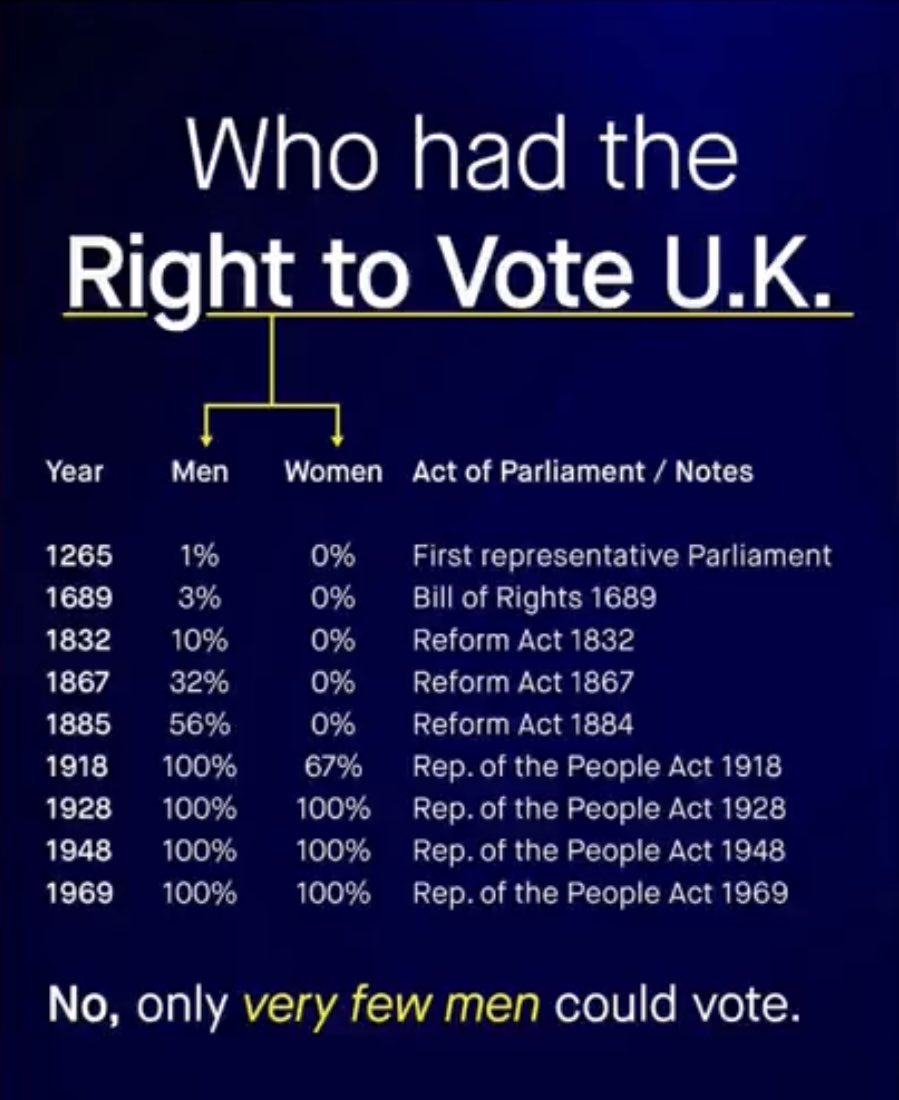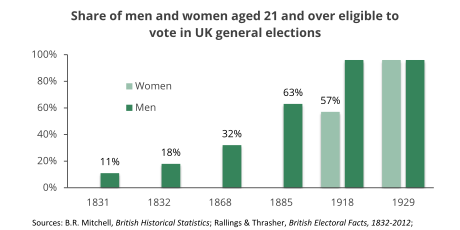Suffrage (United Kingdom): Difference between revisions
Jump to navigation
Jump to search
Content deleted Content added
No edit summary |
No edit summary |
||
| (4 intermediate revisions by the same user not shown) | |||
| Line 1: | Line 1: | ||
[[File:F4Exi3bXoAAKK5 .jpeg|thumb]] |
|||
[[File:F4FJFGoXUAADXaF.png|thumb]] |
|||
https://www.bbc.com/news/uk-42704341 |
https://www.bbc.com/news/uk-42704341 |
||
| Line 11: | Line 13: | ||
<ref>https://www.bbc.com/news/uk-politics-42688270</ref> |
<ref>https://www.bbc.com/news/uk-politics-42688270</ref> |
||
</blockquote> |
</blockquote> |
||
https://equi-law.uk/suffragettes-votes-women/ |
|||
https://archive.is/wip/zLZmq |
|||
== References == |
== References == |
||
Latest revision as of 04:59, 16 June 2024


https://www.bbc.com/news/uk-42704341
https://www.bbc.com/news/education-42840160
The gender gap for other parties became more pronounced in 2015. This was connected to UKIP's very strong showing. They received 13% of the vote overall but were considerably more popular among men than women.
That meant that women were more likely than men to vote for both Labour and the Conservatives. [1]
https://equi-law.uk/suffragettes-votes-women/